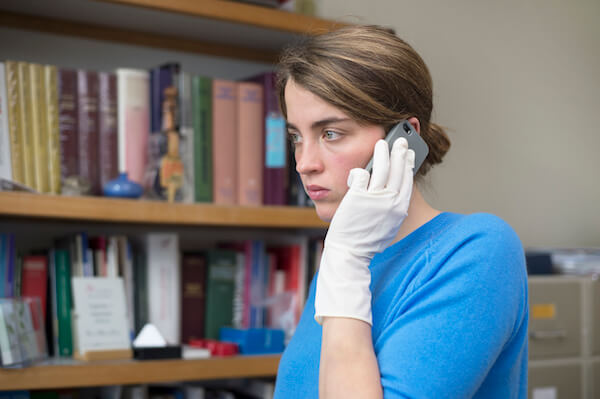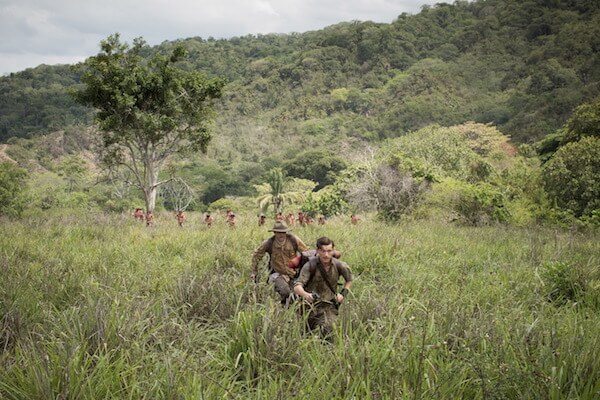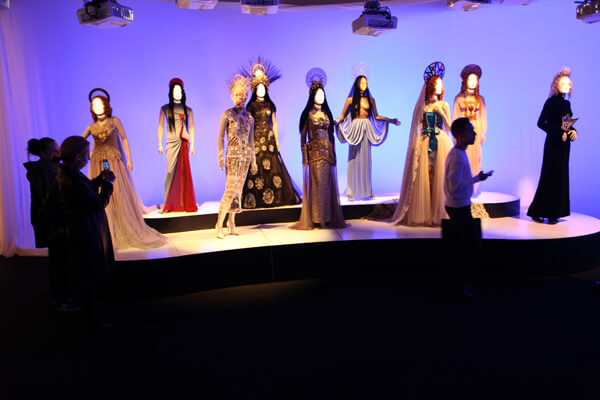Marion Cotillard in Jean-Pierre and Luc Dardenne’s “Two Days, One Night.” | SUNDANCE SELECTS
The effects of the recession that began in 2008 weren’t immediately apparent in world cinema, but some of the past year’s best releases finally started grappling with the brutality of the new Gilded Age. Tsai Ming-liang’s “Stray Dogs” tells it from the side of the victims, Dan Gilroy’s “Nightcrawler” from the side of the victors.
The Dardenne brothers’ cinema has always had political overtones, but their past few films have taken them for granted, apparently assuming that working with provincial Belgian working-class settings is a statement in itself. “Two Days, One Night” brings back an edge to their reinvention of neo-realism, which had grown a bit cozy. At the same time, it marks the first time the Dardenne brothers have worked with an international movie star. Fortunately, Marion Cotillard’s glamour and beauty don’t detract from the character she plays. Pretty people can have problems too.
As “Two Days, One Night” begins, Sandra (Cotillard) gets a phone call informing her that her job at a solar panel factory is set to become a casualty of downsizing. Her 16 coworkers were forced to choose between Sandra’s job and getting annual bonuses of 1,000 Euro each. Not surprisingly, almost all chose the bonus. On a Friday afternoon, she wins a concession that a second vote on her continued employment will be held by secret ballot on Monday morning.
The Dardenne brothers’ look at a working class woman brought low by the new economy
But dogged by a depression that caused her to take some time off from work, her instinct is to stay in bed. Her husband Manu (Fabrizio Rongione), who works in the kitchen of a restaurant called Lunch Garden, pushes her to get going. The family, which includes a young son and daughter, has only tentatively climbed steps toward a middle-class life, and Sandra and Manu fear they’ll wind up back in public housing and on the dole. Fighting off tears and panic, Sandra spends the weekend tracking down her coworkers to convince them to take her side.
The Dardenne brothers’ background was originally in documentaries, but their first two narrative features looked much different from the naturalist work that followed. They didn’t make much of an impression outside Belgium. But their third narrative film, “La Promesse,” did, and all their subsequent movies have followed its neo-realist style. The Dardennes’ signature shot is a handheld camera tracking the back of an actor, often focusing on his or her neck. Their aesthetic has been copied by filmmakers working in completely different areas, like the action films of Paul Greengrass.
Perhaps as a result, “Two Days, One Night” cools it with the shakycam. Apart from minor reframing, the camera generally only moves when the actors do. Compared to earlier Dardennes films like “The Son,” the direction is almost sedate.
Sandra is fighting both capitalism and her own vulnerability. Much of the time, the latter seems to loom larger. The film never spells out the exact nature of the mental illness that led her to take a break from working, but her recovery has her popping Xanax like candy. Sandra’s strongest impulse is clearly to give up her struggle, even as Manu urges her forward. To say that she finds a reservoir of inner strength would make her sound like the protagonist of a Lifetime Channel movie. She’s not an archetypal “strong woman”; in many ways, she’s constantly fighting her weaknesses. But her flaws make her seem all the more real, even if one might question the ease with which she eventually overcomes some of them. (Belgian hospitals let people go home remarkably early, it seems.) In a perverse way, the ending allows her the simultaneous satisfactions of triumph and defeat.
The Dardennes have few critics. The handful of naysayers they do face have accused them of making a kind of “social worker cinema,” fatally distanced from the kind of working-class people they depict. I don’t know the brothers’ own economic background, but they started off filming the neighborhoods where they used to live. Embracing neo-realism, with its background in the Italian left just after World War II, may have been a deliberate political choice for films like “La Promesse” and “Rosetta,” rather than a mere stylistic one. Working-class solidarity isn’t what it used to be, even in Western Europe. The first 85 minutes of “Two Days, One Night” are a prelude to one woman’s attempt to stay true to her community, even if that choice paradoxically leaves her alone.
TWO DAYS, ONE NIGHT | Directed by Jean-Pierre and Luc Dardenne | Sundance Selects | In French with English subtitles | Opens Dec. 24 | IFC Center, 323 Sixth Ave. at W. Third St. | ifccenter.com | Lincoln Plaza, 1886 Broadway at 63rd St. | lincolnplaza.com



































